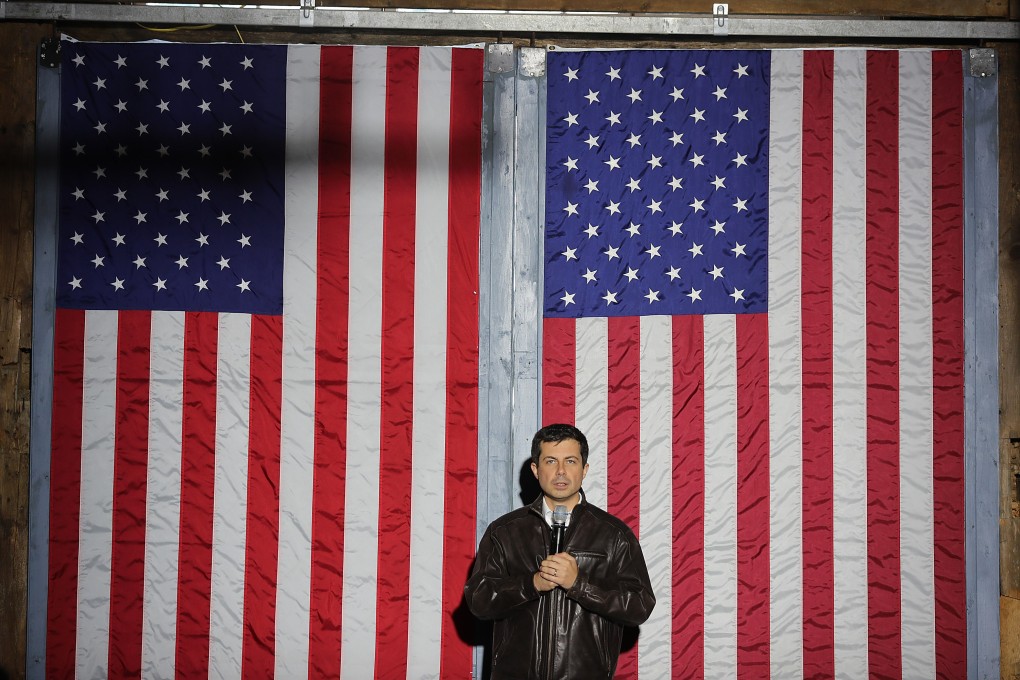Pete Buttigieg: is America ready for a gay president?
- Pete Buttigieg, the gay, liberal mayor of a small American city in the conservative bastion of Indiana, is in the small pack leading the Democratic race
- Poll released last month found that 45 per cent of those questioned thought America was not, or probably not ready for a gay president

As young Democrat Pete Buttigieg emerges as a genuine contender in the 2020 White House race, his rise poses the question of whether America is ready for an openly gay president.
When Buttigieg announced in January that he was considering a presidential run, few had heard of the 37-year-old outside the small Indiana city of South Bend where he is mayor.
Today, he is in the small pack leading the Democratic race, regularly appearing on the campaign trail with husband Chasten Buttigieg – a junior high schoolteacher who now stands to become the first-ever US first gentleman.
The latest national polls put the Afghanistan veteran fourth behind a trio of septuagenarians vastly more experienced than he is: fellow centrist former vice-president Joe Biden, and the progressive senators Elizabeth Warren and Bernie Sanders.
Buttigieg claims to have revived South Bend, an industrial city of 100,000 residents, and wants to end the “horror show” that he says is the presidency of Donald Trump.